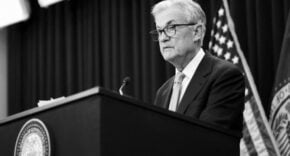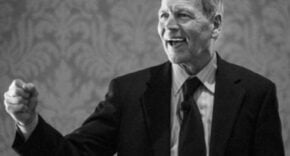Federal Reserve officials said the inflation in the US is resulting from a complex set of unprecedented conditions, and that it may take time to decelerate.
“The inflationary forces impinging on the US economy at present represent a complex mixture of temporary and more long-lasting elements that defy simple, parsimonious explanation,” Governor Philip Jefferson said in remarks prepared for a panel Friday. “The ongoing imbalance between the supply and demand for labor, combined with the large share of labor costs in the services sector, suggests that high inflation may come down only slowly.”
In comments prepared for the same discussion, Cleveland Fed President Loretta Mester said she sees the risks to the Fed’s inflation forecast as “tilted to the upside and the costs of continued high inflation as being significant.”
The officials spoke at the University of Chicago’s Booth School of Business monetary policy forum and were responding to a multi-author paper that said there is no precedent in the post-World War II period for a central bank-induced disinflation that doesn’t entail substantial economic sacrifice or recession.
US central bankers have raised the benchmark lending rate from around zero last March to a range of 4.5% to 4.75% to try and cool inflation.
PCE Inflation
Just prior to their remarks, an inflation report showed price increases remain far above the Fed’s 2% target.
The personal consumption expenditures price index — the Fed’s preferred inflation gauge — rose 5.4% from a year earlier and the core metric was up 4.7%, both marking pickups after several months of declines.
Jefferson said inflation for core services “has remained stubbornly high” while an important source of the pressures “has likely been the shortage of workers, which has pushed up labor costs at rates above those consistent with 2% inflation.
Fed Chair Jerome Powell has cautioned that an easing in a too-tight labor market would be needed to cool continuing price pressures. Nonfarm payrolls increased 517,000 last month – more than twice the expectations of Wall Street – and the unemployment rate dropped to 3.4%, the lowest since May 1969.
With the labor market still strong, the costs of not raising interest rates high enough or lowering them too soon will outweigh the costs of hiking too much, Mester said. “But policy also needs to be forward looking, and as inflation comes down, I anticipate that the balance of risks will shift,” she added.
Mester said the paper demonstrates that policymakers have to contend with uncertainty around their economic models, which can complicate forecasting and policy setting in real time.
In those circumstances, “it can be better for policymakers to act more aggressively because aggressive and pre-emptive action can prevent the worst-case outcomes from actually coming about.”
Original article: https://www.wealthmanagement.com/news/fed-s-jefferson-mester-say-inflation-may-persist-ease-slowly









